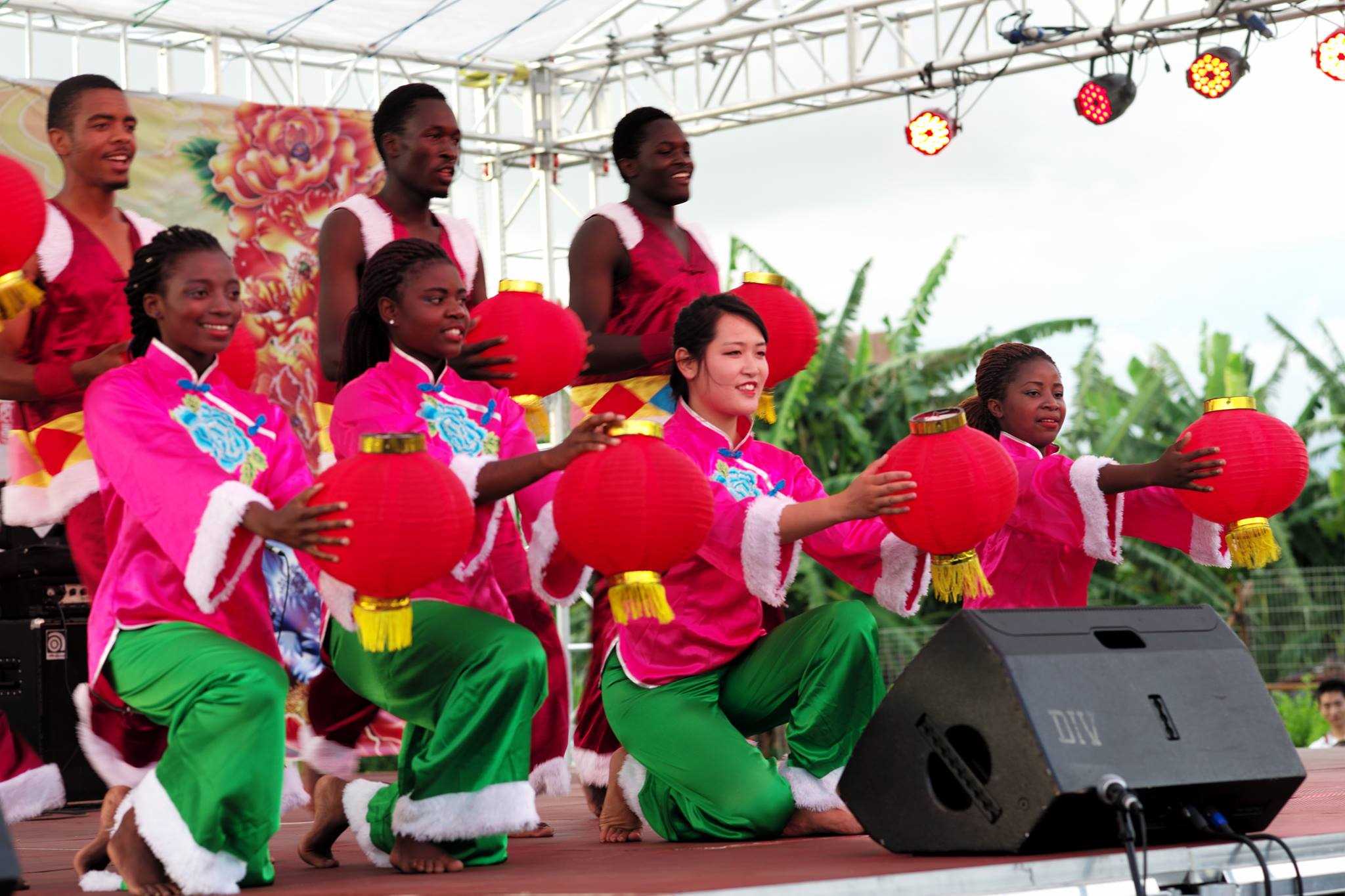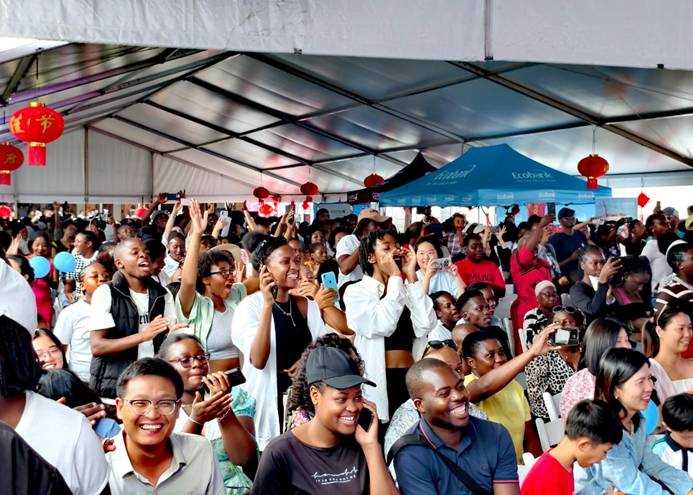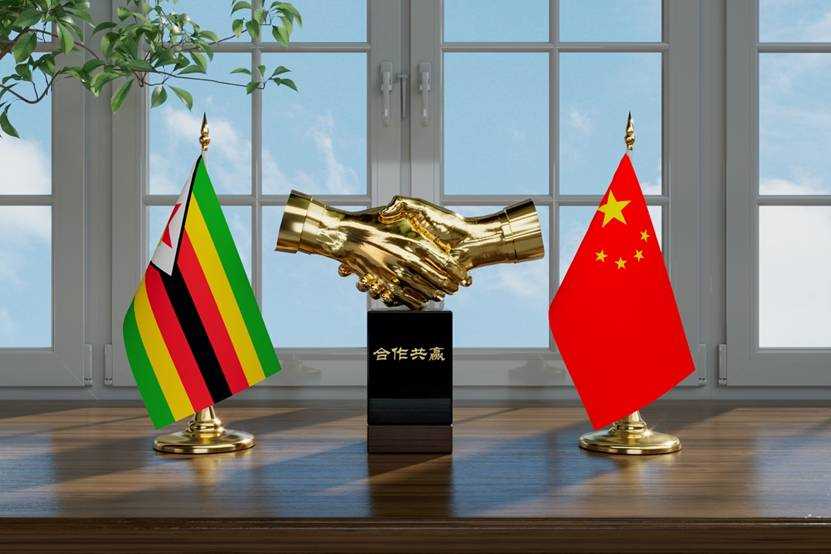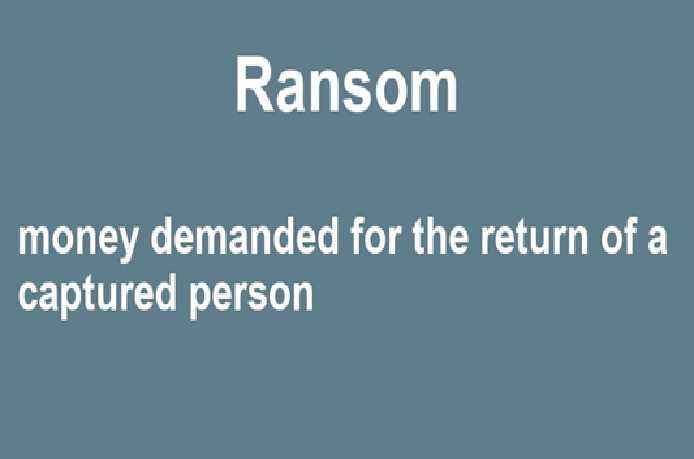
Shelton Dzapasi
Recently, as China celebrated the coming of the tradional lunar new year, there was a magnificent event held in Harare to welcome the Year of the Dragon.
Characterised by cultural performances and intangible heritage showcase from China, the breathtaking event to usher in the Year of the Loong, showed a key aspect that could underline future cooperation between China and Zimbabwe.
During the event, the venue was filled to capacity with local people, Chinese families, businesspeople expatriates as well as diplomatic community participating in what to date has been the largest gathering for an event of this nature.
The overwhelming majority of the attendees were Zimbabweans who were awed by the breathtaking performances, depth and ingenuity of Chinese culture.
This shows the potential of people-to-people exchange to bring the two nations closer together if strategically harnessed and more platform.
There is need to create more opportunities as a matter of urgency.
In such spaces lifetime friendships will be made, as the two sides experience unique cultures and idiosyncrasies and explore commonalities between the two peoples.
Further, there is scope for commercialisation of culture and cultural products and intangible heritage from music, dress to food.
This is one of the key pillars of the Global Civilisation Initiative put forth by China in 2022. The GCI advocates the respect for the diversity of civilizations, advocate the common values of humanity, advocate the importance of inheritance and innovation of civilizations, and advocate robust international people-to-people exchanges and cooperation.
It enjoins countries to uphold the principles of equality, mutual learning, dialogue and inclusiveness among civilizations, and let cultural exchanges transcend estrangement, mutual learning transcend clashes, and coexistence transcend feelings of superiority.
Friendship between Zimbabwean and Chinese people is growing by the day. There is a need to properly harness opportunities such as cultural exchanges and push the boundaries for affinity and deeper commitment to friendship, equality and mutual respect.
Related Stories
BRI Big Idea
This is also underscored within the framework of the Belt and Road Initiative, another Chinese big idea to deepen cooperation with the world.
At the Third Belt and Road Forum held last year, it was underscored that "strong people-to-people bonds serve as an important foundation of Belt and Road cooperation."
In this regard, according to China, it is necessary to embrace the vision of equality, mutual learning, dialogue and inclusiveness among different civilizations, and enable cultural exchanges to transcend estrangement, mutual learning to transcend clashes, and coexistence to transcend feelings of superiority, thus to continuously promote mutual understanding, respect and appreciation among different peoples, cultures and civilizations, and jointly build global network for inter-civilization dialogue and cooperation.
The Belt and Road cooperation partners encourage political parties, parliaments, civil societies, media, think tanks and business communities to play bigger roles in fostering people-to-people bonds, and expect further exchanges and cooperation in areas of art, culture, education, science and technology, tourism, health and sports.
China launched the Joint Statement of Proposals on Strengthening Silk Road People-to-People Connectivity, and will implement the Belt and Road Future Leaders Program, set up a Belt and Road Fund for People-to-People Connectivity, and carry out Action on “Silk Road People-to-People Connectivity”.
What Zim, China can do to deepen people-to-people exchanges
There are a number of opportunities for cooperation within the people-to-people framework.
First of all, there is need for deliberate policy recognition by Government to engender and enhance cultural and people to people exchanges between Zimbabwe and China. This policy explores all levels of possible cooperation within the public and private spheres, including schools, tertiary education and professional arts.
A movement has to be born and nurtured, supported by a competent and dynamic industry that delivers various goods and services. This may also require funding, and resources to support and build the movements with tangible results. Already, some festivals and galas have been undertaken, and these need to be expanded.
A growing frontier for cultural and people to people exchanges has been food and wellness sector. Zimbabweans have been steadily accepting and embracing Chinese food, traditional medicine and wellness activities such as martial arts (tai chi). Creating platforms for the sharing of these aspects, and sharing widely will result in more understanding and expansion of cooperation.
At the same time media also needs to be equipped, attuned and encouraged to show and celebrate these linkages and activities that broaden the scope, reach and impact of people to people exchanges.
The writer is a researcher with Ruzivo Media & Resource Centre, a local think tank that analyses global and local issues




















Leave Comments